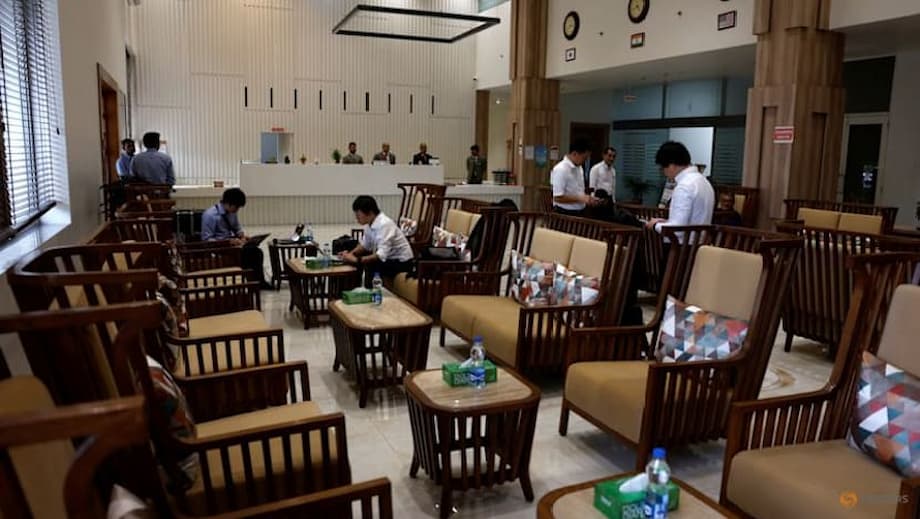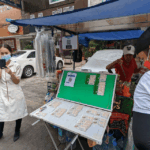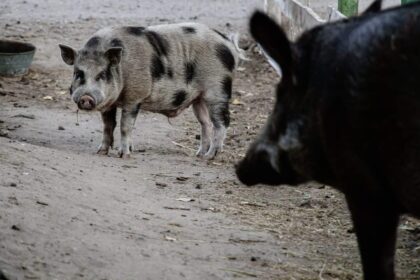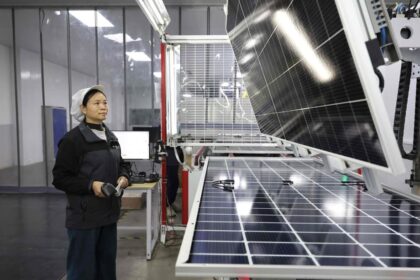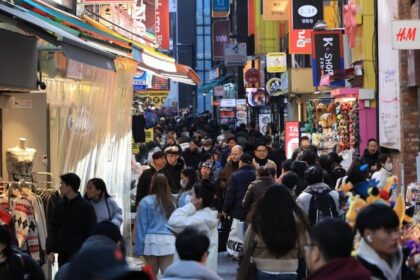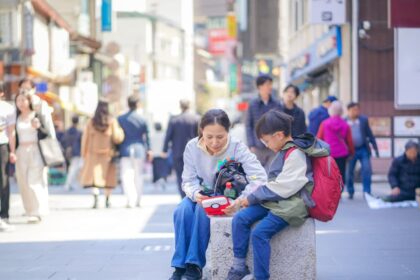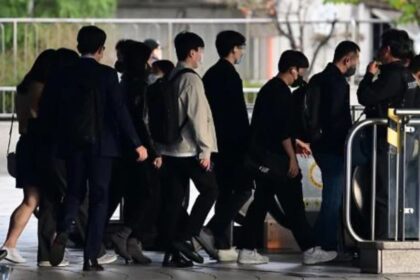Inside the Japanese hotel boom in rural Gujarat
In Vithalapur, a dusty industrial settlement 75 km east of Gandhinagar, new hotels with names like Osaka Palace, Mizuki Ryokan and Midori are serving ramen and tempura to an unusual set of long term guests. Japanese auto engineers and plant managers rotate through the town on multi year assignments, and the hospitality industry has quietly rebuilt itself around them. That pivot collides with the state’s sobriety and vegetarian traditions. In large parts of Gujarat, eating meat or seafood is looked down upon, and the state bans alcohol with narrow exceptions for foreigners.
- Inside the Japanese hotel boom in rural Gujarat
- Why global carmakers chose Vithalapur
- Hotels reinvent themselves for long term stays
- Cultural adjustments meet daily logistics
- Local boom reaches villages and main streets
- Integration, language and community life
- EV plans and new capacity point to durable momentum
- What to Know
The conversion of farmland around Vithalapur mirrors a broader upswing in Japanese investment in Indian manufacturing, a core plank of Prime Minister Narendra Modi’s bid to expand factory jobs and exports. Honda began assembling motorcycles here nearly a decade ago. Suzuki runs an eight year old car plant that rolled out its first electric cars in August. Auto parts makers and other industrial suppliers have followed, stitching a small town into global supply chains.
Direct investment from Japan to India reached about 2.5 billion dollars in the financial year ended March 31, a rise of 27 percent from four years earlier. Much of that flow went to autos and electronics. Accommodation has raced to keep pace. Hyatt is preparing a 108 room property near the factories, while smaller Japanese style lodgings along the highway offer set meals, Japanese TV channels and familiar bathrooms. For many visitors, this infrastructure has turned Vithalapur into a workable base rather than a hardship posting.
Why global carmakers chose Vithalapur
Gujarat’s pitch to manufacturers rests on land banks, logistics and a reputation for predictable rules. Vithalapur sits inside an industrial arc that links Sanand near Ahmedabad with Becharaji and Mandal, with access to ports on the Arabian Sea and rail lines that connect to the Delhi Mumbai corridor. For companies used to just in time production, reliable roads and quicker customs clearance matter as much as wages.
Policy and infrastructure
Japan has partnered with India on big ticket infrastructure that benefits factory towns in Gujarat. The Western Dedicated Freight Corridor, financed with Japanese loans, is designed to move containers faster between the ports of Gujarat and inland markets. Industrial parks and supplier zones around Vithalapur let component makers co locate with final assembly, which cuts transport time and gives engineers a way to troubleshoot on the spot.
State incentives have played a role. Gujarat has offered flexible land allotments and streamlined permits for large projects, which reduces starting delays. That mix helped Honda and Suzuki start production and anchor a web of Japanese, Indian and global suppliers, ranging from wiring harness and castings to logistics and tooling. The dense supplier footprint lowers logistics risk and makes the region attractive for future product launches.
A new EV foothold
Suzuki’s Gujarat unit began series production of its first battery electric model in August. The company has outlined a plan to spend about 350 billion rupees on a second car plant in the state and an extra line at the existing facility. The expansion would lift annual capacity in Gujarat to roughly 2 million vehicles within the next few years, part of a long term target to reach 4 million units across India by 2031.
The new electric platform is intended for India and export markets in Europe, and will also ship to Japan. That focus on electrification raises the bar for the supplier base around Vithalapur. Battery pack logistics, thermal management, lightweight materials and high voltage training create demand for more specialized vendors and more visiting engineers. Hotels have become an essential service for that steady flow of technicians.
Hotels reinvent themselves for long term stays
The AJU Imperial, which stands for All Japanese Utility, is Vithalapur’s most explicit response to the new clientele. The 110 room property posts signage in Japanese, hires cooks trained to prepare sushi and bento sets, and installs Toto washlet toilets, an expensive touch by local standards. Imported fish sometimes arrives from as far as Australia for the kitchen, a rare sight in a state where many families avoid meat and seafood entirely.
Occupancy is driven by professionals on multi year contracts who want predictable meals and a short commute. Similar hotels ring the highway, offering curry rice next to dal and roti, and low tables where guests can sit as they would at home. Hyatt moving in with a 108 room hotel signals that this is not a passing spike. It also adds pressure on smaller operators to keep food quality and cleanliness high.
Prakash Yadav, the founder and managing director of the AJU Imperial, said the aim was to remove friction from daily life so guests could focus on plant targets and supplier reviews.
We wanted to give people the comfort of place and food so they can focus on work.
Behind the scenes, these hotels have built cold chain storage, imported ingredients, and maintenance routines more common to Tokyo than to Mandal Taluka. Staff training now includes Japanese greetings, guidance on taking shoes off at room doors, and how to adapt recipes for guests who have never eaten a Gujarati thali.
Cultural adjustments meet daily logistics
Gujarat is one of a handful of Indian states with prohibition. Alcohol is restricted. Foreign nationals can drink legally, but only with a personal permit or inside a hotel that holds a liquor licence. Permits require paperwork, renewal is frequent, and monthly purchases are capped. For visitors posted to factories, these rules turn a simple glass of beer into a process that must be planned ahead.
Those rules shape weekend routines. Some hotels are still waiting for a bar licence, and at properties without one guests often drive to Ahmedabad, a three hour round trip, to buy their allotted stock. The process is legal, but it is hardly convenient for people who leave the plant floor late in the evening.
Yadav said the delay in approvals has been a running frustration for managers and visitors alike, and that it also shapes how dining spaces are planned.
Until we get a license, guests have to drive three hours to Ahmedabad city to buy their monthly stock.
Food is the other fault line. Many Gujaratis follow Jain or Hindu customs that favor vegetarian diets. The guests arriving from Hamamatsu or Aichi are used to grilled fish and meat. Hotels thread the needle by keeping separate prep spaces for vegetarian and non vegetarian meals, and by importing items that are scarce in local markets. It is a material change for cooks and vendors in a region where eating fish carries social stigma.
Local boom reaches villages and main streets
A cluster of villages around Vithalapur, Becharaji, Jhalishana and Detroj has been reshaped since Suzuki Motor Gujarat and Honda settled in. Small malls, salons, Japanese style groceries and gaming rooms have opened to serve families and the steady churn of visitors. Property values have climbed. Farmers who sold or leased land now run guesthouses, shops and travel agencies. The area is often called Little Tokyo by residents who have watched storefronts change and menus expand.
Employment has widened beyond the plants. Construction crews, bus operators, electricians, translators and security firms have all found work. Local colleges have added short courses in basic Japanese phrases and industrial safety. The ecosystem is not complete. Residents still point to gaps such as international schools, hospitals designed for expat insurance, and leisure infrastructure like golf ranges or indoor sports.
Municipal services are adapting as well. Water supply and waste management need more capacity for several thousand extra meals a day and constant linen washing. Hotel operators say the learning curve has been steep, but that the benefits are visible in steady bookings and new supply contracts for vegetables, dairy and bakery items.
Integration, language and community life
Not every need can be met by a hotel. Weekend baseball games, Japanese language classes for children, and holiday events now dot the calendar in the cluster. Companies host safety days and cherry blossom themed gatherings in factory lawns during spring. Local residents join in, in part out of curiosity, and in part because these events pump money into catering and transport.
Language remains a barrier. Many visiting engineers are new to India. Hotels respond with bilingual signage and concierge staff who can navigate local paperwork. Some firms pair newcomers with Indian managers who know the area, which lowers friction at bank counters and mobile phone stores. Small gestures make a difference, from stocking familiar toiletries in rooms to building a quiet corner for tea and calls back home.
EV plans and new capacity point to durable momentum
The direction of investment suggests Vithalapur’s role will continue to expand. Suzuki plans to lift capacity in Gujarat with a second plant and an added line, while pushing toward 4 million units of annual production in India by 2031. First generation electric models will ship from the state to Europe and Japan. That means more training sessions, line upgrades and supplier audits, and a steady stream of specialists who need places to stay and eat.
Hospitality will evolve in parallel. Global chains will bring their own standards for water filtration, safety and housekeeping. Independent Japanese focused hotels will keep leaning into menus and cultural cues that make guests feel at home. If permitting improves and education and healthcare options deepen, the cluster could shift from a rotation hub to a community that supports families staying for several years.
What to Know
- Vithalapur, 75 km east of Gandhinagar, has become a base for Japanese auto engineers and managers.
- Honda began motorcycle production in the area nearly a decade ago, and Suzuki’s eight year old plant started making electric cars in August.
- Japan’s direct investment in India reached about 2.5 billion dollars in the year ended March 31, up 27 percent in four years, with heavy focus on autos and electronics.
- Hotels such as AJU Imperial, Mizuki Ryokan and Midori cater to Japanese guests with familiar food, signage and amenities like Toto washlets.
- Hyatt is preparing to open a 108 room hotel, signaling sustained demand.
- Gujarat’s alcohol prohibition remains a challenge, with foreigners needing permits and monthly purchases capped.
- AJU Imperial founder Prakash Yadav says the goal is to provide comfort so guests can focus on work, but permit delays force long drives to Ahmedabad for liquor purchases.
- Suzuki plans about 350 billion rupees of new investment for a second Gujarat plant and an added production line, with a longer term target of 4 million units in India by 2031.
- Local villages have seen new shops, rising land prices and more jobs, though gaps remain in schools, hospitals and leisure facilities.


